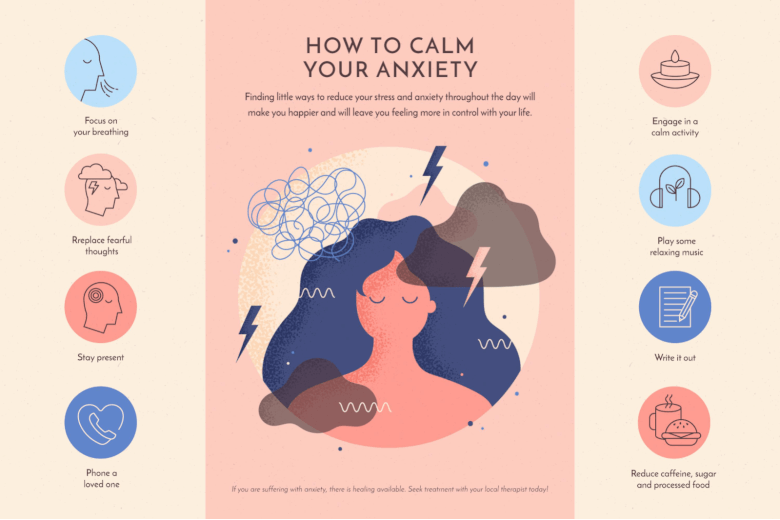Unlocking the Hidden Truth: How Anti-Anxiety Meds Transform Calm Individuals into Self-Assured Superheroes – Read On!
 Image courtesy of Karolina Grabowska via Pexels
Image courtesy of Karolina Grabowska via Pexels
Table of Contents
Amid the ever-growing concerns surrounding mental health, the use of anti-anxiety medication has become increasingly prevalent. For those considering or currently taking these medications, understanding the potential side effects plays a crucial role in ensuring a successful treatment journey. In this blog post, we will explore the curious world of anti-anxiety medication, unveiling the common side effects that often accompany them and discussing strategies to manage them effectively.
An Overview of Anti-Anxiety Medication
Anti-anxiety medication encompasses various types that are widely available on the market today. These medications work by targeting certain brain chemicals and receptors, ultimately helping to alleviate the symptoms associated with anxiety disorders.
Gain Confidence and Control: Conquer Anxiety with Expert Guidance.
Stay Informed & Empowered – Subscribe to Our Exclusive Newsletter Today!
Unveiling Common Side Effects
When taking anti-anxiety medication, it is essential to be aware of the potential side effects that may arise. While these effects can vary from person to person, certain physical and psychological reactions are commonly observed. Let us delve into each category:
Physical Side Effects
Drowsiness and Sedation: One of the most frequent side effects reported by individuals taking anti-anxiety medication is drowsiness and sedation. These medications target the central nervous system, which can induce a calming effect but may also lead to feeling groggy or excessively sleepy. It is important to consider this impact on daily functioning, especially when engaging in activities that require alertness, such as driving or operating machinery.
Gastrointestinal Disturbances: Another common side effect relates to digestive issues, including nausea, constipation, or stomach discomfort. Such gastrointestinal disturbances can disrupt daily routines and affect overall well-being. Adapting one’s diet by incorporating fiber-rich foods and staying hydrated may help alleviate these symptoms. Furthermore, consulting with a healthcare provider can provide guidance on managing gastrointestinal issues effectively.
Headaches and Dizziness: Some individuals may experience headaches or dizziness as a result of taking anti-anxiety medication. These side effects can be disruptive and impact everyday activities. Staying hydrated and maintaining adequate rest can assist in managing these symptoms. If headaches or dizziness persist, seeking medical advice is advisable to rule out other underlying causes.
Psychological Side Effects
Emotional Blunting: A potential psychological side effect of anti-anxiety medication is emotional blunting. This refers to a reduction in the intensity of emotional responsiveness, which can leave individuals feeling emotionally numbed or disconnected. While this effect can be a desired outcome for managing extreme anxiety, it is important to work closely with a healthcare provider to strike the right balance and to ensure emotional well-being is not compromised.
Cognitive Impairment: Some individuals may experience cognitive impairment, such as memory difficulties or reduced concentration, while on anti-anxiety medication. It is essential to note that these effects are usually temporary and reversible. Engaging in cognitive exercises, such as puzzles or memory games, can help mitigate these symptoms. Additionally, maintaining open communication with healthcare providers to discuss and monitor these cognitive changes can further assist in ensuring optimal treatment outcomes.
Paradoxical Reactions: In rare instances, anti-anxiety medication can trigger paradoxical reactions, leading to unexpected symptoms. These reactions may include increased anxiety, agitation, or even mood swings. Should any unusual or severe reactions occur, it is crucial to consult a healthcare professional promptly. They can assess the situation and adjust the medication regimen accordingly.
“Embrace the journey from calm to confident. Discover how to navigate the side effects of anti-anxiety medication and reclaim your inner strength. 💪✨ #MentalHealthMatters [insert link]”
Coping and Managing Side Effects
Managing the potential side effects of anti-anxiety medication requires collaboration and open communication between individuals and their healthcare providers. Alongside medical guidance, implementing certain lifestyle adjustments and coping strategies can greatly enhance the treatment experience:
 Image courtesy of www.calmclinic.com via Google Images
Image courtesy of www.calmclinic.com via Google Images
Lifestyle Adjustments
To combat drowsiness and sedation, establishing proper sleep hygiene can significantly improve energy levels during the day. Prioritizing consistent sleep schedules, creating a calming bedtime routine, and ensuring a comfortable sleep environment are key components to consider in optimizing sleep quality.
Addressing gastrointestinal disturbances may involve dietary changes. Including fiber-rich foods, such as fruits, vegetables, and whole grains, in one’s diet can promote healthy digestion. Staying well-hydrated and avoiding excessive caffeine intake can also aid in managing these symptoms. Seeking input from a registered dietitian or a healthcare provider can offer personalized strategies tailored to individual needs.
Coping Strategies
For those experiencing emotional blunting, engaging in psychotherapy can provide invaluable support. Through therapy, individuals can explore their emotional landscape, learn coping mechanisms, and develop strategies to reconnect with their emotions while still benefiting from the medication’s therapeutic effects.
Cognitive exercises have proven helpful for individuals facing cognitive impairments. Activities such as puzzles, memory games, or even journaling can stimulate the mind and enhance mental agility. Discussing these concerns with a healthcare provider can offer further guidance on exercises tailored to personal needs.
It is crucial to emphasize the significance of promptly reporting any persistent or severe side effects to healthcare professionals. Open communication allows for timely intervention, ensuring a more personalized and successful treatment plan.
Gain Confidence and Control: Conquer Anxiety with Expert Guidance.
Stay Informed & Empowered – Subscribe to Our Exclusive Newsletter Today!
In Conclusion
Understanding the potential side effects of anti-anxiety medication is essential for individuals navigating the treatment journey. By being knowledgeable about the common physical and psychological reactions, individuals can better prepare themselves and work closely with healthcare providers to tailor treatment plans accordingly. With open communication, the implementation of lifestyle adjustments, and the utilization of coping strategies, individuals can navigate the side effects of anti-anxiety medication with confidence. Successfully managing these effects can lead to a more calm and fulfilling life.

